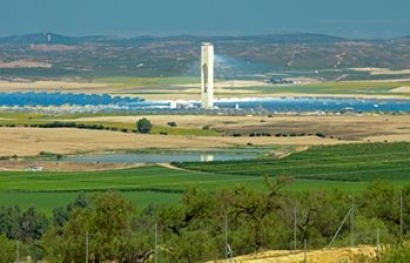
Negev Energy, a joint venture created by the two firms, will build, own and operate the 110 MW solar trough plant with storage located in the Negev desert.
The parabolic trough plant will use the latest technology developed by Abengoa and will be able to store energy in order to produce electricity when required after sunset.
Construction is expected to begin in 2014 in the Ashalim area of the Negev Desert once the power purchase agreement and the project financing are closed.
Already, the Israel Electricity Corporation has committed to purchase electricity through a power purchase agreement.
Solar trough plants collect solar energy using large high precision mirrors that follow the sun and concentrate its energy onto heat absorber tubes that carry a fluid. The temperature of the fluid increases up to 390 degrees Celsius.
Using a heat exchanger the thermal energy is then transferred to water in order to generate steam that is used to produce electricity using a turbine. Additionally, part of the thermal energy can be stored in molten salt thermal tanks in order to use it later to generate steam and produce electricity, in this case for approximately four hours. This technology therefore has two key advantages.
First, it is a clean source of energy that avoids CO2 emissions, more than 300,000 tons per year by this particular plant. And secondly, it generates power whenever required and not only when the natural resource, in this case the sun, is available making it one of the few clean dispatchable technologies available today.
Abengoa currently has 743 MW in commercial operation and 910 MW in construction around the world. It is one of the few companies that designs, builds and operates solar plants using both tower and parabolic trough technology.
For additional information:

